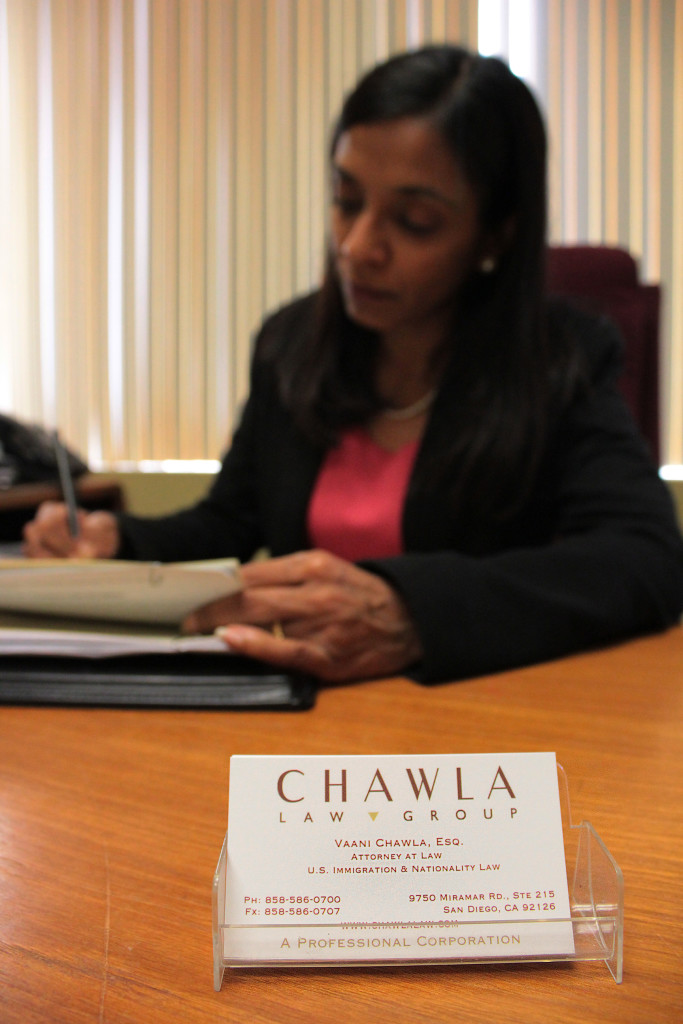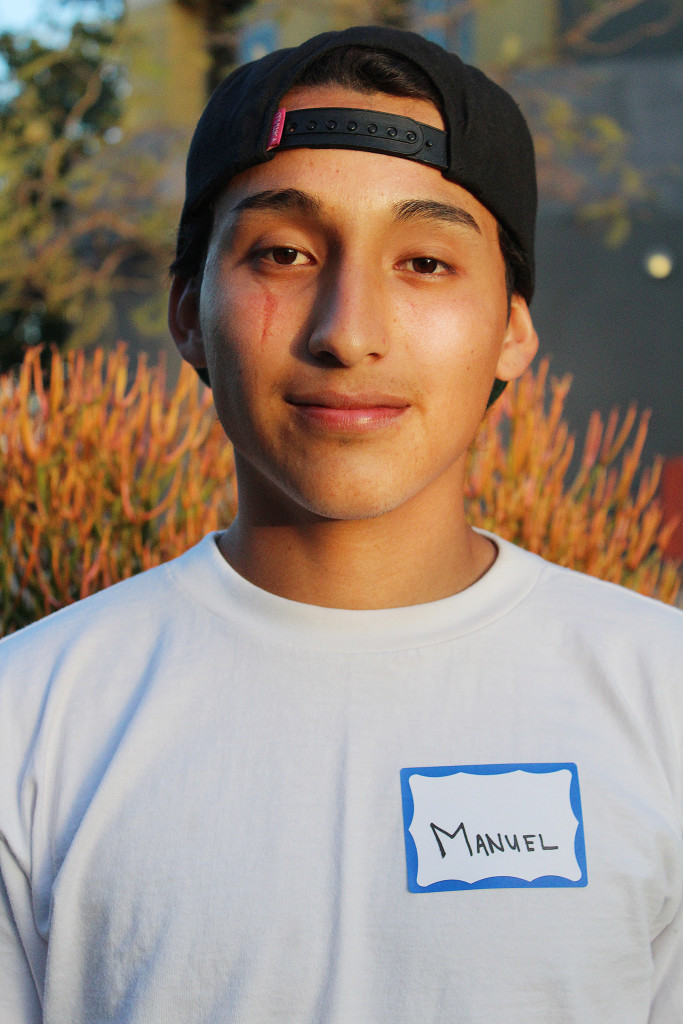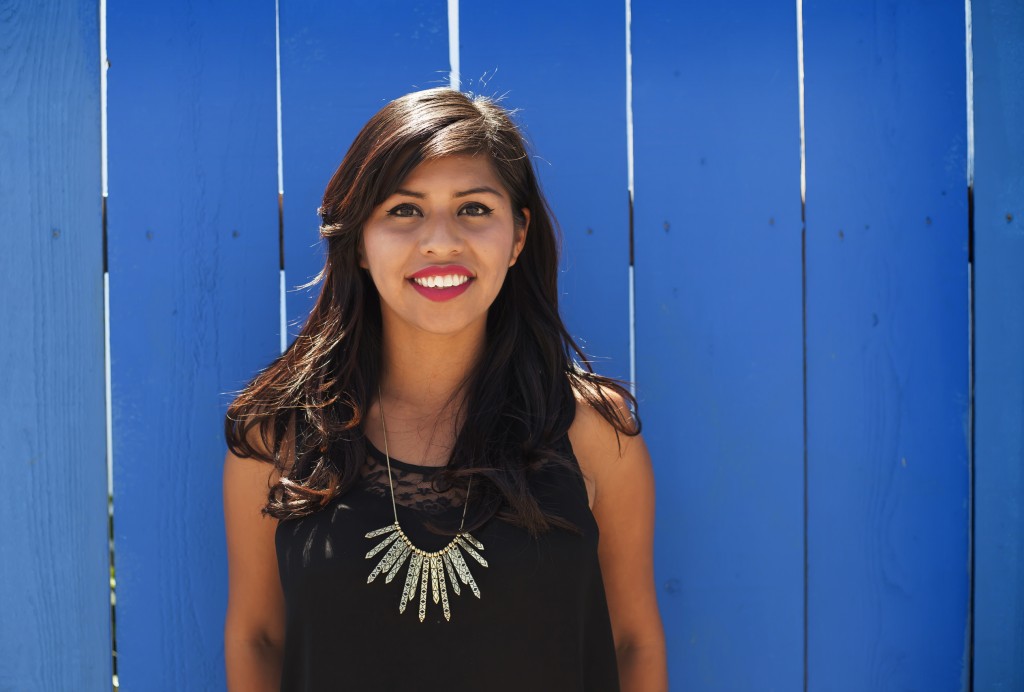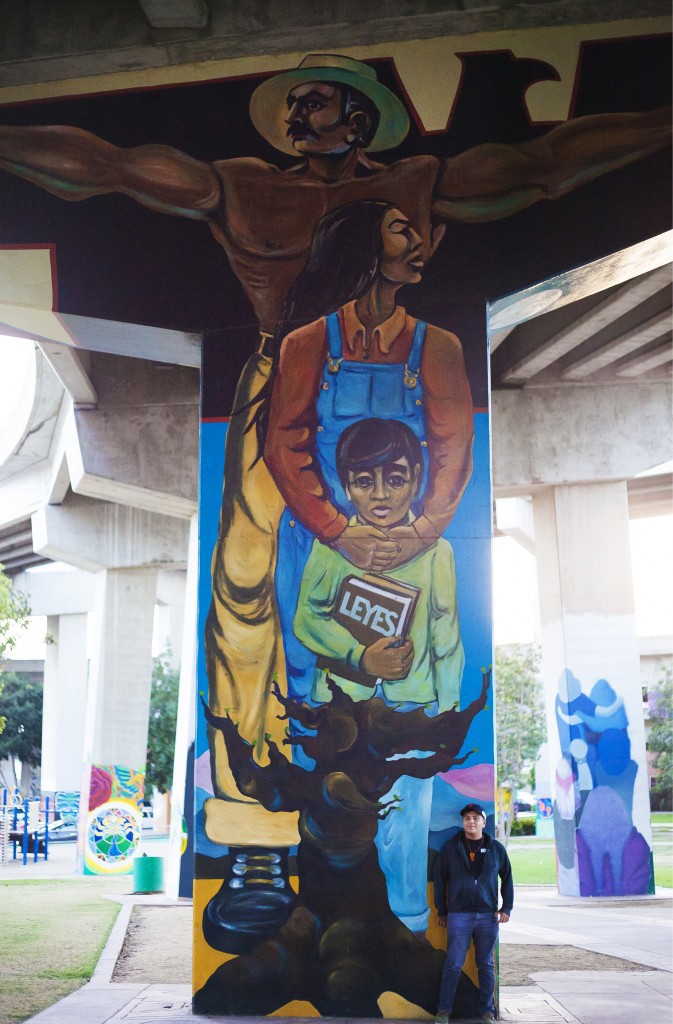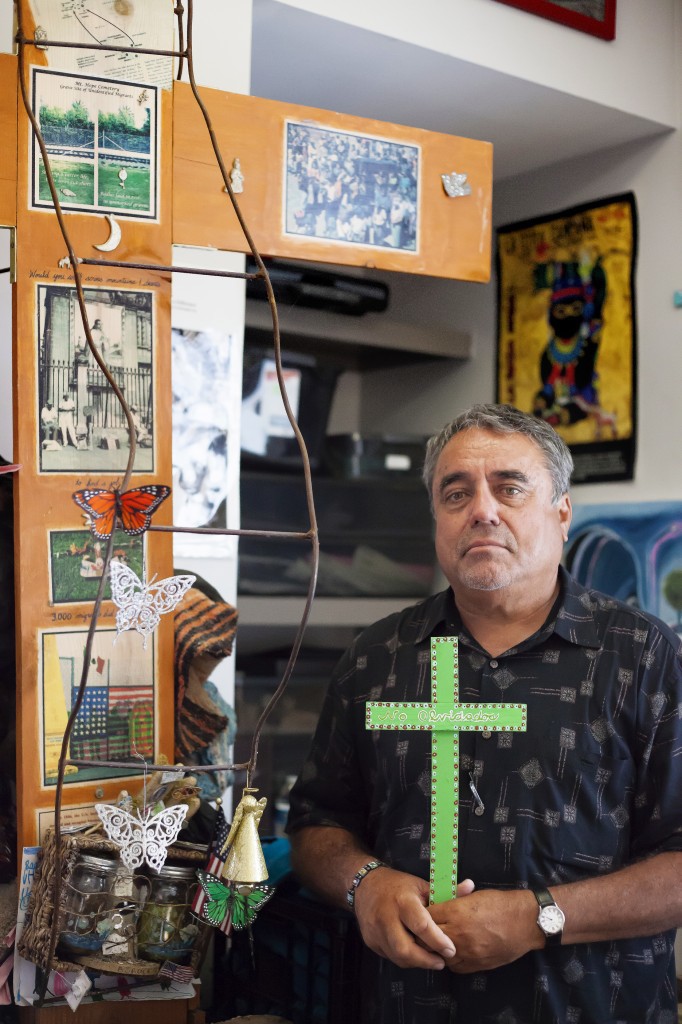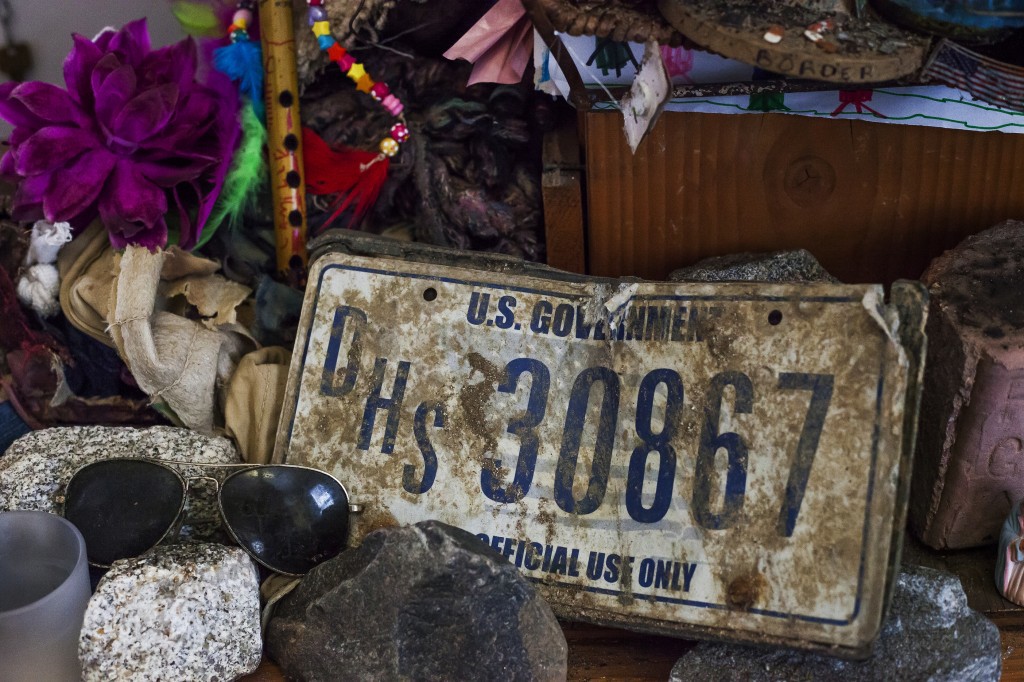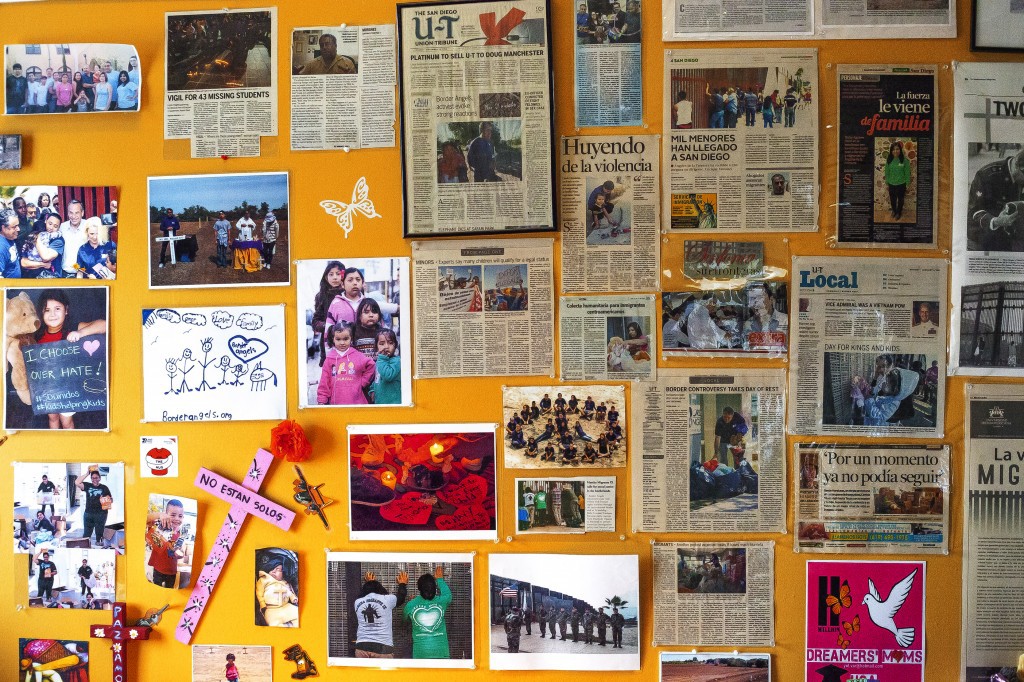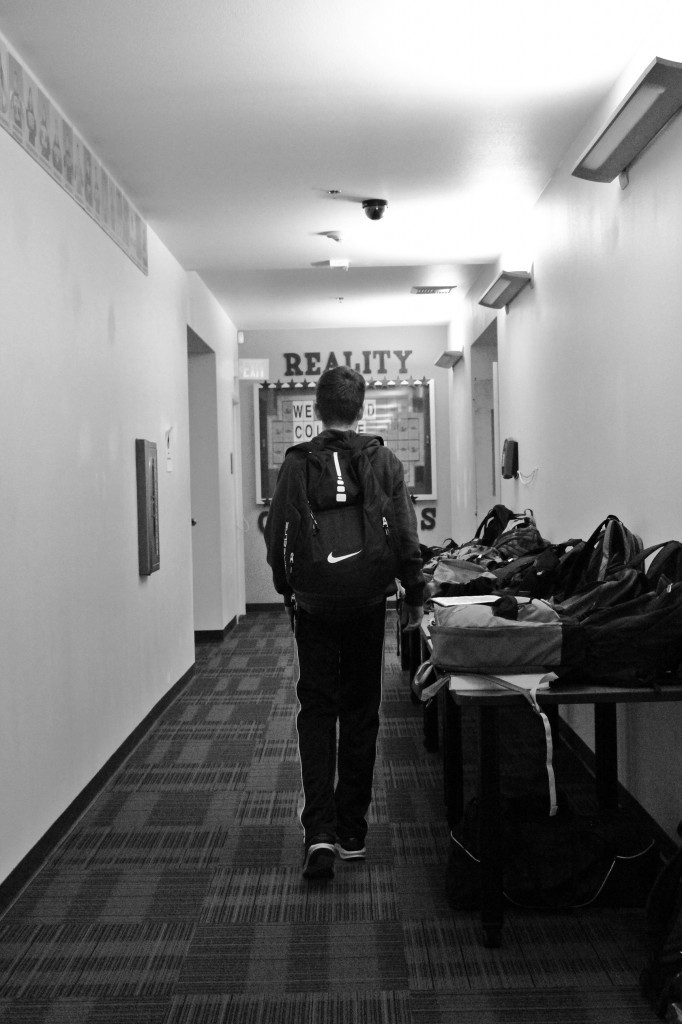By Kiran Mehta, Beto Soto, Famo Musa,
Binti Musa and Karla Flores

The YAC Youth Media Team has worked to understand and share the voices and stories of undocumented and unaccompanied minors in the region, as well as to identify resources and stakeholders who are currently working to assist and advocate for this population. What is happening in terms of addressing the issue, and what is being done on the policy level, both locally and nationally?
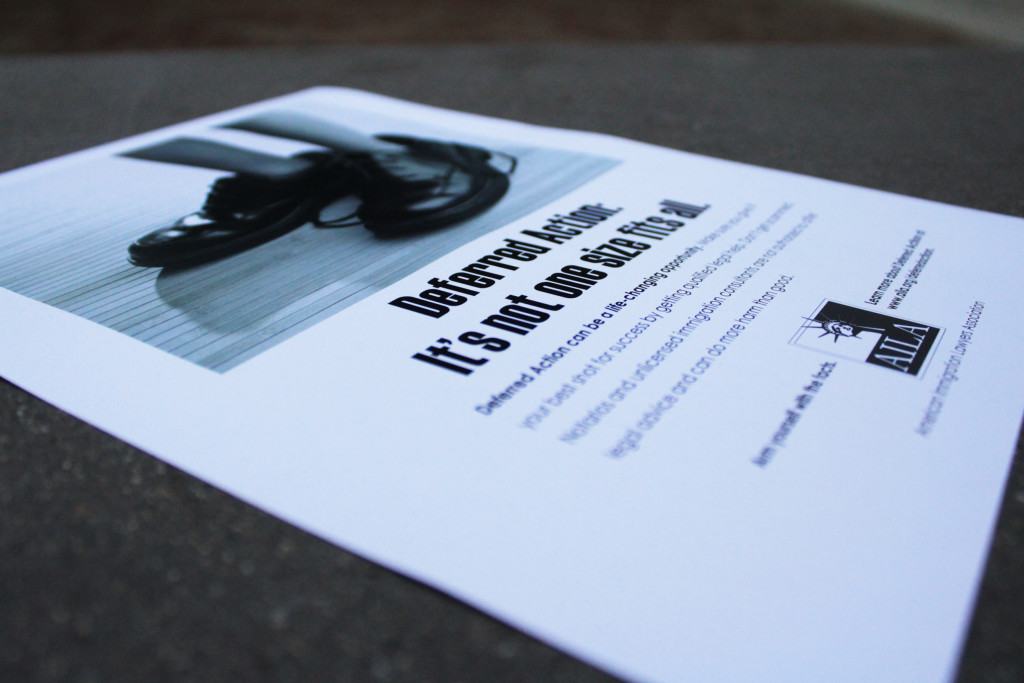 Photo by Famo Musa
Photo by Famo Musa
Deferred Action for Childhood Arrivals, also known as DACA, is an American immigration benefit created by President Barack Obama’s executive action on June 15, 2012. DACA allows qualifying undocumented immigrants who came to the U.S. as children to receive a renewable two-year work permit and an exemption from deportation.
According to the Immigration Policy Center, there are approximately 1.4 million immigrants currently in the United States between the ages of 5 and 30 years old who might meet the requirements of the deferred action initiative, either now or when they are older. California is the state with the highest number of potential beneficiaries, both immediate and future (412,560), followed by Texas (226,700) and Florida (85,750).
2012 DACA Criteria (currently being accepted):
According to the 2012 executive action for DACA, you may request DACA if you:
|
The U.S. Citizenship and Immigration Services (USCIS) website includes helpful information regarding the requirements to qualify for the DACA program.
DACA Expansion Information and Status
“We are and always will be a nation of immigrants. We were strangers once, too… What makes us Americans is our shared commitment to an ideal – that all of us are created equal, and all of us have the chance to make of our lives what we will.”
– President Barack Obama
President Obama announced his proposal for an expansion of the DACA program during his speech on Nov. 20, 2014. The proposed expansion softened the length of time required by eligible candidates to have continuously lived within U.S. borders, eliminated the prior age-limit and extended the length of time for work permits from two to three years.
During the same speech, the President also announced the creation of the Deferred Action for Parents of Americans and Lawful Permanent Residents (DAPA) program, which would provide immigration relief to qualifying undocumented foreign nationals who have a child with U.S. citizen or lawful permanent resident status.
On Feb. 16, two days before the DACA expansion was to go into effect, a U.S. federal district court in Texas issued a temporary injunction order preventing implementation of the expanded DACA and DAPA programs created through executive actions taken by President Obama.
As a result of this court order, the U.S. Department of Homeland Security (DHS) put a hold on plans to accept DAPA or DACA applications based on the 2014 expanded criteria.
Individuals may continue to apply for an initial grant of DACA or renewal of DACA under the 2012 guidelines.
Photo by Kiran Mehta
Attorney Vaani Chawla is the founder of Chawla Law Group, APC, a San Diego-based firm offering legal representation in the field of U.S. immigration law. Chawla has been practicing immigration law for more than 20 years.
“Immigration law is about deciding who gets to come in the U.S. and who doesn’t,” Chawla said.
“As individuals and groups come in, the government decides who meets the criteria to live here permanently.”
She said DACA benefits children who did not have a say in the decisions that forced them to live as undocumented individuals in the U.S.
“After years of hiding and struggling, these children have a chance to come out of the shadows and become contributing members to their communities,” Chawla said.
Unaccompanied Alien Child (UAC) or Unaccompanied Minor:
According to Section 462 of the Homeland Security Act of 2002, an unaccompanied alien child (UAC), or unaccompanied minor, is a person who is
|
According to the American Immigration Council, the vast majority of these children currently lack papers permitting them to reside lawfully in the United States and thus are part of the broader flow of undocumented immigration. However, many may be in need of international protection, requiring a careful and balanced analysis of their claims.
The United Nations High Commissioner for Refugees (UNHCR) and many U.S.-based groups that monitor U.S. refugee and asylum practices have cautioned that concerns over illegal immigration should not trump the United States’ international obligations to protect those fleeing persecution or other harm. Because establishing an asylum claim may take time and frequently requires counsel, these groups, including the American Immigration Council, have warned that accelerated processing could cause adjudicators to overlook legitimate claims for asylum, according to ImmigrationPolicy.org.
As the policy conversation regarding undocumented and unaccompanied minors continues on a national level, local voices speak out about DACA and its impact on youth within City Heights and the greater San Diego communities.
Photo by Beto Soto
Manuel, a 17-year-old student at Mission Bay High School, came to the United States when he was 5 years old. His father was living in the U.S. and saved enough money for Manuel and his family to join him.
After traveling by plane and bus within Mexico, Manuel crossed the border with a family he did not know. “I had to act like I was their child,” Manuel said. Once in America, his parents, in fear of deportation, told him to always tell people that he was from the United States.
“When I was little, I grew up with the mentality of avoiding conflict with the police or law enforcement,” Manuel said. When he joined Advanced Placement (AP) classes in high school, he grew less talkative due to fear of discrimination and isolation.
“My (past) teacher from second grade helped me apply for (DACA).” Manuel said. “She helped me file the application, drove us to the offices and helped me throughout the whole process. Now, I see her as a friend.”
After being approved for DACA, Manuel feels safer and more protected. Manuel is currently a member of the Reality Changers, a City Heights-based nonprofit that transforms lives, schools and communities by providing youth from disadvantaged backgrounds with the academic support, financial assistance and leadership training to become first-generation college students.
Manuel’s advice to undocumented youth is to “look to organizations like the Reality Changers because they can help you achieve your goals. They can support you and make you feel like you are not alone.”
Photo by Kiran Mehta
The San Diego Dream Team advocates for immigrant communities at a local, state and national level. The Dream Team has created a space for mutual support, immigrant rights organizing and undocumented immigrant youth voices. The Dream Team meets on the first and last Sunday of every month at the Pride Center in North Park to educate residents, hold DACA/DAPA clinics and advocate for the passing of new legislation for undocumented migrants.
Alondra is the Dream Team’s DACA Core Team lead. The DACA Core Team organizes offline and online outreach to potential first-time and renewal applicants of the DACA federal program. In addition, Alondra assists with organizing presentations, assessment sessions and clinics to educate and assist undocumented immigrant youth in applying for this federal program.
After DACA was implemented, Alondra and the Dream Team conducted interviews and qualitative assessments with their clients about what life was like for them after being approved for DACA. Many enjoy hard work and freedom after receiving their DACA work permits by obtaining their first real job, purchasing a car and utilizing credit cards.
“Policy such as DACA and DAPA are facilitating economic growth,” Alondra says. “New DACA recipients are excited to do taxes and attend college.”
Photo by Kiran Mehta
With roots from an indigenous ethnic group from Oaxaca, Mexico, Luis Rodriguez and his family faced discrimination from the Mestizo and Spanish populations in Tijuana. Luis’ native language is Mixtec, but he said he no longer speaks it due to the discrimination he and his family experienced from Spanish speakers.
Despite the fact that Luis was strongly opposed to the idea of going to a foreign country where he could not speak the language, his father convinced him that the United States is a place of freedom, education and opportunities.
Arriving in the U.S. with his uncle on Nov. 24, 2005, it was difficult for Luis to settle because of the language barrier and discrimination from both Americans and other cultural groups. Luis found common ground with other immigrants and refugees in English as a Second Language (ESL) classes as well as in programs facilitated by the International Rescue Committee (IRC). Luis was impacted by the similarities he shared with other immigrants in his community.
“It’s like we are different creatures, but we bring all our own customs with us.”
Inspired by a Chicano Park mural by Jose Montoya, Luis discovered his drive to become a lawyer and help his indigenous Mixtec people. In the “Leyes-La Familia” mural, Luis sees himself as the young boy holding a law book. Ever since he saw this mural and the resilience in the little boy’s eyes, he knew he wanted to serve his people through the law.
“This mural changed my life,” Luis said.
Luis is currently studying political science and labor studies and was recently accepted to University of California, Los Angeles. He is looking to earn his master’s degree and work as a labor organizer in immigration.
Luis received DACA eight months after applying in 2012. Although DACA has provided Luis with a certain sense of security, he remains skeptical about the policy and believes DACA “is like giving a piece of bread to those who are hungry.”
Photo by Kiran Mehta
Enrique Morones founded Border Angels in 1986 to provide humanitarian assistance to migrants living in the canyons of San Diego’s North County. Since then, Border Angels has expanded its work to the entire U.S.-Mexico border region, collaborating with hundreds of universities and human rights groups. As an all-volunteer non-profit organization that advocates for human rights, humane immigration reform and social justice, Border Angels engages in community education and awareness programs throughout San Diego and the U.S.
The organization strives to stop unnecessary deaths of individuals traveling through the Imperial Valley Desert mountain areas, as well as the areas located around the U.S.-Mexico border. According to the National Foundation for American Policy, there were 477 reported migrant deaths in 2012, but many more remain unreported. According to Morones, many of these unnecessary deaths are the direct result of extreme weather conditions and racially motivated crimes.
Photo by Kiran Mehta
As Morones advocated for immigrants’ rights and spoke about the current state of immigration reform, he quoted President Obama in saying “…before they were “us,” they were “them.” As Morones points out, President Obama was likening today’s immigrants to the ancestral immigrants who built our nation.
“They were the Einsteins and the Carnegies. But they were also the millions of women and men whose names history may not remember, but whose actions helped make us who we are; who built this country hand by hand, brick by brick,” President Obama said during his address on Comprehensive Immigration Reform on Jan. 29, 2013.
Photo by YAC Youth Media Team
Dulce, outreach coordinator for Border Angels, works with Morones organizing trips to the U.S.-Mexico border as many as three times per week and sometimes on weekends. Border Angels looks to reduce the number of fatalities occurring along the California border through the placement of food, water and clothing at life-saving stations in the desert for migrants who have crossed the border.
Dulce said Border Angels volunteer relief groups collect the shoes they find throughout the Imperial Valley desert while looking for signs of people.
“There are different clothes and fabrics we find there, and they are the ones (migrants) wear under their feet so they don’t leave footprints behind,” Dulce said. “The Border Patrol tracks footprints and items left behind to find migrants coming through the desert.
Every Tuesday at 6 p.m., Border Angels offers free legal services provided by immigration attorneys at the Border Angels headquarters located at the Sherman Heights Community Center Office, 2258 Island Avenue. On the first Sunday of every month, Border Angels facilitates free legal services provided by immigration attorneys at Friendship Park for those who have been deported and can’t cross the border.
“It doesn’t matter where you came from, what language you speak or the color of your skin,” Dulce says. “Our goal is to have equal rights for everyone.”
Photo by Beto Soto
Fourteen-year-old City Heights resident Carlos* came to the United States from Mexico when he was 5 years old. As a young child in Mexico, Carlos was unable to receive treatment for his degenerative lung disease. Carlos’ parents decided to bring him to the United States to seek a treatment successful in reversing his disease, which in turn resulted in saving his life.
Carlos is in 10th grade at Hoover High School and has two brothers and a younger sister. Two of Carlos’ siblings were born in the United States, making them U.S. citizens. This fact alone has made it increasingly difficult for Carlos’ parents to return to Mexico, given that two of their children would be undocumented whether they lived in Mexico or the U.S.
Carlos is an active member of Reality Changers, but because of his undocumented status, Carlos has a difficult time accessing services and resources available to peers in his community. Carlos has found Reality Changers to be a positive place to reflect on his future and increase his academic options through college readiness and leadership training.
“When my father sees our report cards, he gets happy,” Carlos said. “He knows in his heart that he made the right decision by coming here.”

